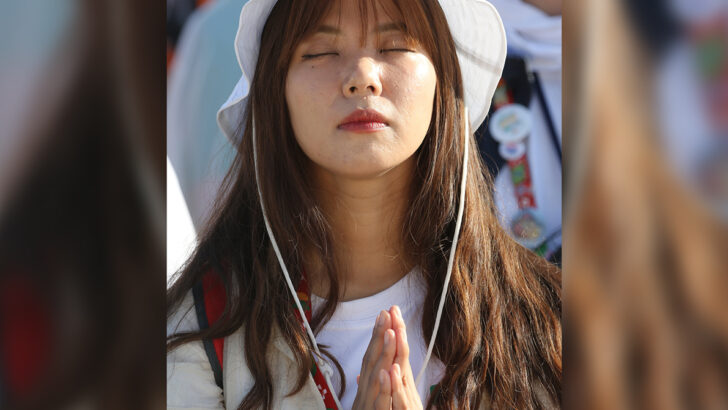Brenda Noriega-flores
Have you ever found yourself pondering the meaning of life? If so, you’re not alone! Most people, especially between 13 to 30 years of age, frequently wrestle with these big questions. Wonder is part of what it means to be human and, as St Thomas Aquinas wisely noted, it’s a deep desire for knowledge.
During our younger years, it’s natural to seek answers about who we are, where we come from, and where we want to go. These questions can be both exhilarating and daunting. But here’s the truth: Life without wonder feels empty. Genuine wonder doesn’t just come from grappling with the unknown; it originates from a deeper source within us. It’s God who plants that sense of wonder in our hearts, inviting us to seek him out and all goodness, truth and beauty in the world.
When we move through life on autopilot – just going through the motions without dreaming or being surprised by new experiences – we risk losing touch with our true essence. Our hearts can become weary and unresponsive. In other words, our hearts get old.
Abundantly
Jesus tells us that he came so we could have life abundantly (Jn 10:10). This isn’t just about our hearts beating faster or our lungs taking in more air. It speaks to two deeper realities: eternal life and how we perceive and engage with the world around us.
In Christus Vivit, Pope Francis’ letter to young people (and the rest of the Church), reminds us that Christ is alive and that he desires for us to be fully alive. But what does this mean, especially when we’re tossed by life’s challenges?
When someone asks for directions, we typically start by understanding where they are. Similarly, to navigate our lives effectively, we must first recognise our own starting point. This involves understanding who we are, how we feel and our relationship with God.
By reflecting on our place in the world and articulating our understanding of ourselves in relation to God, we can chart a path toward the ultimate goal for every Christian: holiness. In other words, we can learn to live in abundance.
Now, I am not talking about a financial abundance, but the type of abundance that – with or without material possessions – makes life matter. Abundance in Christian discipleship means to leave it all so that we can receive. I know that sounds contradictory but please, bear with me. We are invited to renounce any type of security and usually, it is more about mental securities or comfort zones. When we have grown wounds or resentments toward a friend, relative, classmate, co-worker or even a stranger, it is easier to walk away from that relationship than to do the hard work of reflection, healing and reconciliation. Similarly, when we have biases against a person for whatever ‘otherness’ we may perceive. It is more comfortable to ignore differences and a Christian call to communion and recognise God in the other and all of creation.
The same goes for those times when we opt against getting involved in the face of suffering or injustice and we turn a blind eye for fear of being negatively affected if we are to speak up; or when we get so wrapped up in our list of tasks and accomplishments that we leave no time for listening attentively to the pain and needs of others.
As we grow and mature, we should strive to maintain our enthusiasm and openness to new realities. Every moment offers a chance to renew our sense of youthfulness”
When we withdraw from a suffering world or challenging conversations or relationships due to fear, resentment, apathy or anger, our hearts start getting old, and instead of living, we turn into walking bodies that breathe and even reason but do not dream and love. Trust me, I’ve been there. But Pope Francis reminds us that seeking security and comfort can limit our horizons and dampen that youthful excitement we should carry throughout life. As we grow and mature, we should strive to maintain our enthusiasm and openness to new realities. Every moment offers a chance to renew our sense of youthfulness (Christus Vivit, 160).
Stepping out of our comfort zones may feel challenging, but it’s essential for growth as disciples. Living in abundance means fostering relationships with God and all of creation, allowing our hearts to be renewed by love, compassion, kindness, humility, gentleness and patience (Col 3:12-14). To do otherwise is to live in scarcity.
So, dear friends, I invite you to ponder God’s infinite love for you. Allow yourself to wrestle with and rest in the idea that you are cherished beyond measure. Let God heal any biases, divisive thoughts, narratives or worldly expectations about success.
Embrace the capacity of wonder and dreaming that define youthfulness, and don’t let comfort or apathy rob you of that joy. Ask questions, explore your feelings and don’t be afraid to seek out Christ who the greatest mystery of life is. Each step you take on this journey brings you closer to discovering the meaning and fullness of your unique life.
Brenda Noriega-flores is a doctoral candidate in theology and education at Boston College Clough School of Theology and Education.


 A pilgrim prays during the closing Mass during World Youth Day at Campo da Graça in Park Tejo in Lisbon, Portugal, August 2023. Photo: OSV/Bob Roller
A pilgrim prays during the closing Mass during World Youth Day at Campo da Graça in Park Tejo in Lisbon, Portugal, August 2023. Photo: OSV/Bob Roller 